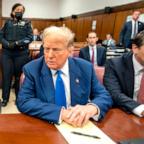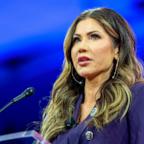Sources: Panel to look at NBA medical records
NBA team personnel are expected to be asked to submit personal medical histories to a panel of physicians who would review the individual risk of serious illness due to any spread of the coronavirus in the NBA's bubble environment in Orlando, Florida, sources told ESPN.
It is unclear what authority, if any, that panel might have in prohibiting any personnel from attending the league's restart -- or placing limitations upon them -- but there is some anxiety about such limitations among teams, sources said.
One significant factor in establishing risk for health complications due to the coronavirus is advanced age. That leaves three head coaches among those in the 22-team July restart -- San Antonio's Gregg Popovich (71), Houston's Mike D'Antoni (69) and New Orleans' Alvin Gentry (65) -- perhaps vulnerable to recommendations of those evaluations, sources said.
The NBA is nearing completion on a voluminous health and safety guide detailing the protocols for the teams involved in the league's resumption at The Walt Disney World Resort, sources said. (ESPN is owned by The Walt Disney Company.)
Personnel are expected to begin an evaluation process by submitting medical information to their individual team doctors, who will then share that with at least one non-team-affiliated physician before a recommendation would be rendered, sources said.
Last week, NBA commissioner Adam Silver suggested that head coaches could be limited in access to their teams on the bench, perhaps restricted to meeting and locker room scenarios.
"When it comes to actual play, we're not going to want them that close to players in order to protect them," Silver said during a TNT interview Friday.
Limitations to Popovich, D'Antoni and Gentry could leave their teams at a significant competitive disadvantage in Orlando. Executives with the three franchises and elders of the National Basketball Coaches Association have been in consistent contact with the league office on the matter, sources said.
D'Antoni and Gentry have been publicly and privately frustrated with the possibility that they could be left off the team's bench -- or even left out of the bubble -- and fear a decision to limit or omit them could be the end to their careers.
Shortly after Silver's TNT interview, NBCA president Rick Carlisle talked with the commissioner and expressed his concern that the league's older coaches might be held back from leading their teams in Orlando.
Legal experts consulted by ESPN, including a top attorney in the Miami office of the U.S. Equal Employment Opportunity Commission, agreed unanimously that the NBA could not exclude any personnel from participating in Orlando solely on the basis of age.
That would not change even if all personnel over a certain age agreed to a medical review before heading to Orlando and the review highlighted risk factors linked to more severe outcomes from any coronavirus infection, experts said.
"You can't base an adverse employment decision solely on the possibility that someone's age puts them at higher risk to get sick or have more serious symptoms," Robert Weisberg, regional attorney at the EEOC's Miami office, told ESPN.
The NBA subjecting all team personnel, regardless of age, to a medical review may not make it any easier for the league to unilaterally bar anyone from attending in Orlando, legal experts told ESPN -- though a few acknowledged the potential for a slight gray area.
The review process would presumably be designed to alert team personnel with multiple preexisting conditions that indicate they could be more vulnerable to severe coronavirus outcomes -- even death.
Such personnel could come from among all ages and job descriptions -- including players, should the NBA require the same sort of medical review for them.
Forcibly excluding such personnel could implicate both the Age Discrimination in Employment Act and, perhaps more importantly, the Americans with Disabilities Act, experts said.
The ADEA bars employment standards that more harshly impact older workers even if they are applied to everyone. There are exceptions if employers can prove "a reasonable factor other than age" -- perhaps a preexisting medical condition in this instance -- is at the root of any prohibition, legal experts said.
But in a legal memo released last month, the EEOC made it clear that, under the ADA, employers may not exclude employees "solely because" of any risk factor "that places him at higher risk for severe illness if he gets COVID-19." The ADA allows exceptions in cases in which the risk factor "poses a direct threat to [the employee's] health that cannot be eliminated or reduced by reasonable accommodation," the memo states.
The "direct threat" standard is hard for employers to meet, legal experts said. Everything the NBA has planned Orlando -- strict quarantines, social distancing, frequent testing and temperature checks -- in effect mimics a "reasonable accommodation" designed to reduce risk.
"I am unaware of any exceptions to these rules that would permit exclusion of older employees or employees who may have a history of health conditions -- absent evidence that the individual either has the virus or has been exposed to someone who has," said Philip Berkowitz, a shareholder at Littler Mendelson, one of the leading firms representing employers in discrimination and labor relations cases. "Employers need to be careful that in perhaps being too protective of employees, they don't expose themselves to lawsuits."
Any legal analysis of a potential prohibition would also have to touch on whether the employee in question has the risk factor under some control and the chances of any employee contracting the virus in the Orlando campus environment, according to legal experts and the EEOC memo.
"They can still do the job, and there are ways to protect against COVID without barring them," said Peter Romer-Friedman, head of the Civil Rights and Class Actions practice at the law firm Gupta Wessler in Washington.
The gray area could arise if medical experts agree someone who gets more sick from coronavirus is more likely to be contagious, potentially endangering others, some experts said. Employees whose job performance affects the safety of large groups -- airline pilots, for example -- have at times been held to different standards in labor-related discrimination cases.
Otherwise, it has largely been left up to employees to decide if they want to take whatever risks exist, experts said.
Given how new the coronavirus is, it may be hard to prove anyone with underlying risk factors poses that sort of severe danger to others. This becomes a legal issue only if a team or league employee chooses to make it one. Whatever medical review process the NBA institutes could end with a nonbinding recommendation -- go or don't go -- the league (or the employer's team) strongly encourages the person to follow.




